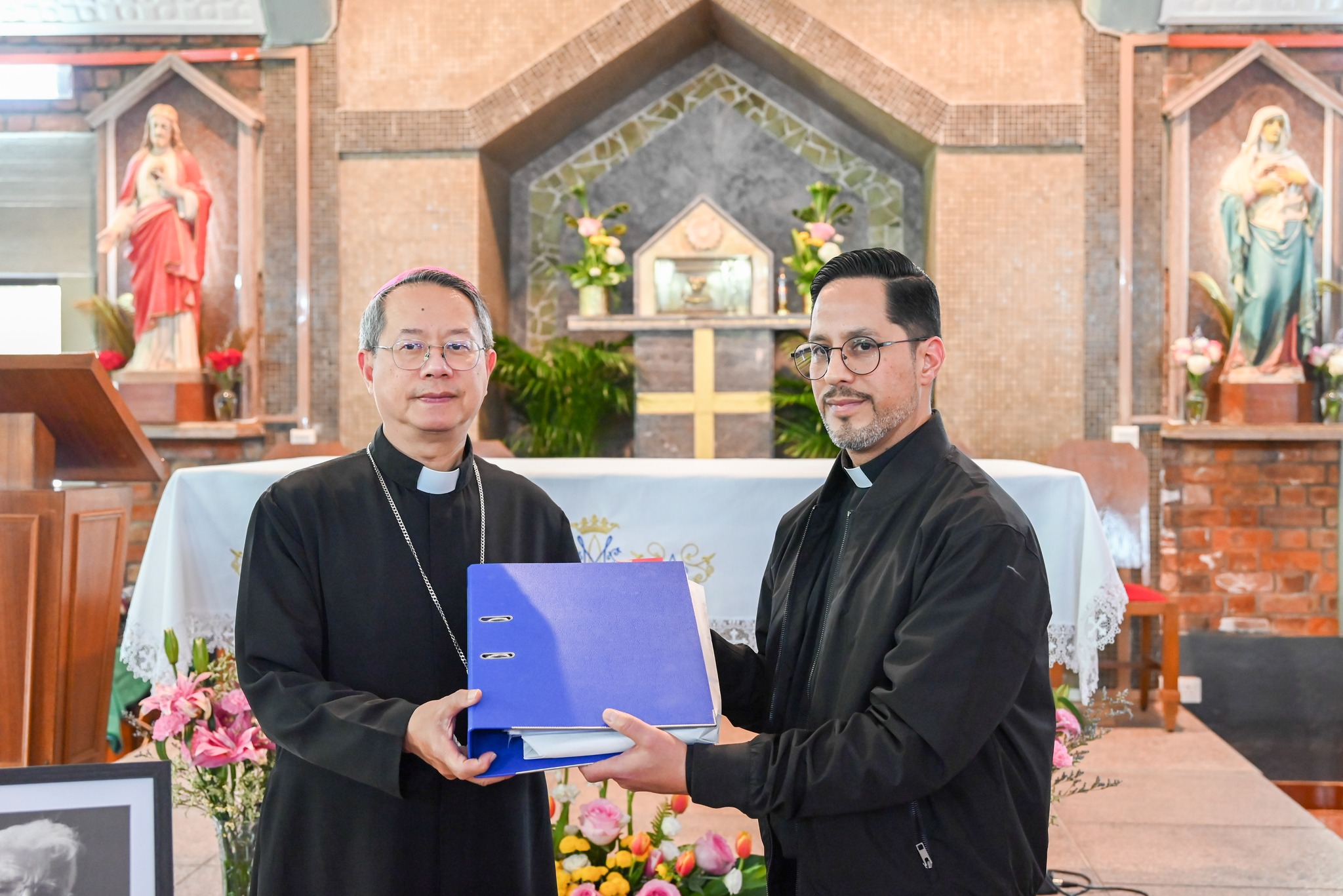– Rev José Mario O Mandía
“The Son of God. . . worked with human hands; he thought with a human mind. He acted with a human will, and with a human heart he loved. Born of the Virgin Mary, he has truly been made one of us, like to us in all things except sin.” (Gaudium et Spes 22 #2, quoted in CCC 470)
HUMAN SOUL
Jesus Christ has a human soul just like any other human being. And just like any human soul, His soul was created. CCC 471 says that on the occasion of an error, the Church clarified this matter: “Apollinaris of Laodicea (c 310 – c 390) asserted that in Christ the divine Word had replaced the soul or spirit. Against this error the Church confessed that the eternal Son also assumed a rational, human soul” (cf Damasus 1).”
TWO INTELLECTS: ONE HUMAN, ONE DIVINE
As God, Jesus possesses divine knowledge. As man, he also has a human intellect.
CCCC 90 (cf CCC 472-474) teaches: “With his human intellect Jesus learned many things by way of experience; but also as man the Son of God had an intimate and immediate knowledge of God his Father. He likewise understood people’s secret thoughts and he knew fully the eternal plans which he had come to reveal.”
Aside from his divine knowledge, Jesus Christ had three types of human knowledge.
(1) Human (Experimental or Experiential) Knowledge. The knowledge that one acquires through the senses and through experience.
CCC 472 explains: “This is why the Son of God could, when he became man, ‘increase in wisdom and in stature, and in favour with God and man (Luke 2:52), and would even have to inquire for himself about what one in the human condition can learn only from experience (cf Mark 6:38; 8:27; John 11:34; etc). This corresponded to the reality of his voluntary emptying of himself, taking ‘the form of a slave’ (Philippians 2:7).”
(2) Infused Knowledge. Because of the union of the human nature to the Divine, Jesus’ human mind could know God’s plans, and each man’s innermost thoughts (cf CCC 473 and 474).
(3) Beatific Knowledge or Vision. Beatific knowledge comes with union with God in heaven. Since Jesus was always united to his Father, we can say that as man, He possessed the same kind of face to face vision that the saints have of God in heaven.
TWO WILLS: ONE HUMAN, ONE DIVINE
The existence of two wills in Christ stands out in the agony in the garden where Jesus prayed, “not as I will, but as thou wilt” (Matthew 26:39, 42; cf Mark 14:36-41; Luke 22:41-42; cf Council of Constantinople III).
Was there ever a conflict between Christ’s human will and His divine will? CCCC 91 summarizes Church teaching on this matter: “Jesus had a divine will and a human will. In his earthly life the Son of God humanly willed all that he had divinely decided with the Father and the Holy Spirit for our salvation. The human will of Christ followed without opposition or reluctance the divine will or, in other words, it was subject to it.”
CHRIST’S BODY
If Jesus was true man, he should not only have a human soul, but also a human body. CCCC 92 affirms: “Christ assumed a true human body by means of which the invisible God became visible. This is the reason why Christ can be represented and venerated in sacred images.”
By taking on a human body, Jesus made it holy. This is why we need to keep our bodies pure, in thought, word and deed. Moreover, we should offer our bodies – not only our minds and souls – to God (cf Romans 12:1).
And, of course, he had and continues to have a human heart (cf CCCC 93). He knows what it means to be sad “even unto death” (Matthew 26:38, Mark 14:34); he understands our sorrows and is moved when he sees us “harassed and helpless” (Matthew 9:36); he teaches us what true happiness is, and wants “that my joy may be in you, and that your joy may be full” (John 15:11).
Did he ever laugh? Of course, he did. The days the apostles spent with the Lord were days filled with laughter: “Thou dost show me the path of life; in thy presence there is fullness of joy, in thy right hand are pleasures for evermore” (Psalm 16:11).


 Follow
Follow


